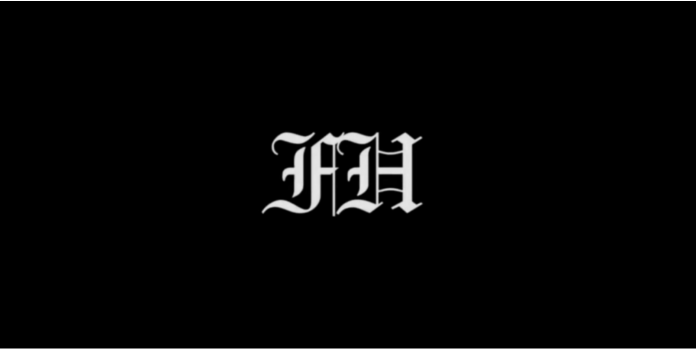Thursday, Feb. 24, Yuliya Ladygina, Helena Rubinstein University Endowed Fellow in the Humanities and assistant professor of Russian and Global Studies at Penn State University, presented her lecture “Hauntology, Ruins, Macabre and a Promise of a Brighter Future in Valentyn Vasyanovych’s Atlantis” to guests in Washington Hall.
Ladygina led the second Tepper Speaker Series event hosted by the College of William and Mary Russian and Post-Soviet Studies program this week.
“This is a very important and difficult time. We are commemorating a year of full-scale, unjustifiable and brutal invasion, and almost nine years of ongoing war in Ukraine,” Ladygina said.
Her presentation focused on her recent research: “The Reel Story of Russia’s War Against Ukraine,” which analyzes over 40 films to understand the cinematic representation of Ukrainian society since 2014. Research topics include the Euromaidan protests, Russian annexation of Crimea, the DonbasWar and the current Russian invasion.
“It’s part of my mission to talk to people and answer questions,” Ladygina said. “I’m originally from Ukraine. Both my cousins are active-duty soldiers who are serving on the front.”
Ladygina argues that “Atlantis” (2019) shows how Ukrainian society can wrestle with its past once conflict stops.
“[The film] is set in the bombed out Ukraine of 2025, victorious in its war against Russia, but left in social, economic and environmental ruins,” Ladygina said. “The film’s crumbling world is barely distant enough to qualify as speculative fiction. Yet the focus is not on politics. It is really on the Ukrainian people and how they adjust to the after-effects of the war.”
“Atlantis” tackles themes of post-traumatic stress disorder, suicide and trauma — all filmed before the Russian invasion began in 2022.
“Locations were filmed around the city of Mariupol, which was besieged and largely destroyed by Russian forces last spring,” Ladygina said. “The most recognizable of them, the blast furnace facility of the Azovstal Metallurgical Combine became the most emblematic site of Ukrainian resistance during the siege.”
Russian Studies Program Director and Professor of Russian Studies Dr. Elena Prokhorova helped organize the event and expanded on themes of the film.
“It’s a very dystopian and gloomy picture,” Prokhorova said. “The world that it shows after the Ukrainian victory is completely devastating.”
Prokhorova also detailed how post-Soviet Russian politics under current Russian president Vladimir Putin explain the roots of the conflict.
“Since 2004 and the Orange Revolution, Putin has been watching Ukraine basically go in the opposite direction from Russia,” Prokhorova said. “It is a war of imperial aggression and territorial conquest.”
Ladygina related the concept of hauntology, the repressed histories or phantoms of an imagined future, to Ukraine and other post-Soviet spaces.
She described a country in ideological limbo — one that is neither Russian nor Western. According to Ladygina, the ghosts haunting Ukraine refer not only to unreckoned terrors under Soviet rule, but also empty promises and dreams from before and after the end of the Cold War.
Ladygina argued that post-2014 Ukrainian ideas of political mobilization and civic nationalism clash with a weaponization of history by Putin, who seeks to tie the two nations together.
“I’m using scholarship to show how Ukrainian filmmakers deconstruct Russia’s use of selective memory, especially of World War II, to legitimize its military operations and interventions in Southeastern Ukraine,” she said.
Ladygina also explained the usage of Russian soft power in Ukraine.
“It’s not only conventional warfare — boots on the ground and arms in hand,” Ladygina said. “It’s also the culture, the history, the information, the propaganda that is crucial in shaping the events.”
Ladygina described how the Donbas region in eastern Ukraine has often been portrayed as the industrial heartland of the Soviet Union, even after its collapse, connecting the real-life filming locations to reality.
She also mentioned that Western optimism after the Cold War failed to see the negative ripple effects of the Soviet Union’s collapse on countries like Ukraine.
“The ghost of another future that never really materialized was the future of democratic capitalism and liberal order,” Ladygina said.
She suggested that cinematic representations like “Atlantis” may help forge a path forward.
“This film could serve as a guide to Ukraine’s post-Soviet decommunization and its ongoing struggle to forge a new vision for its future, which is not necessarily a carbon copy of Western liberal democracy or type of capitalism,” Ladygina said.
David Berger ’25 shared his thoughts after the event ended.
“There’s a lot of symbolism that points to a more hopeful future, especially in regards to Russia right now and the war in Ukraine,” Berger said. “It’s kind of terrifying how this film predicted that this would be the climate that we are in right now.”
Prokhorova elaborated on the platform that the Tepper Speaker Series events provide.
“We see our jobs as basically keeping Ukraine front of mind all the time,” Prokhorova said. “The fact that Ukraine is not in the front of the newspaper does not mean the war or atrocities have stopped. Russia would love for this to fall off the radar. So our job is to organize these events.”
“We are very aware that this war just shows we need to decolonize Slavic studies,” Prokhorova said. “A lot of the things that are considered Russian [in the region] are not.”

